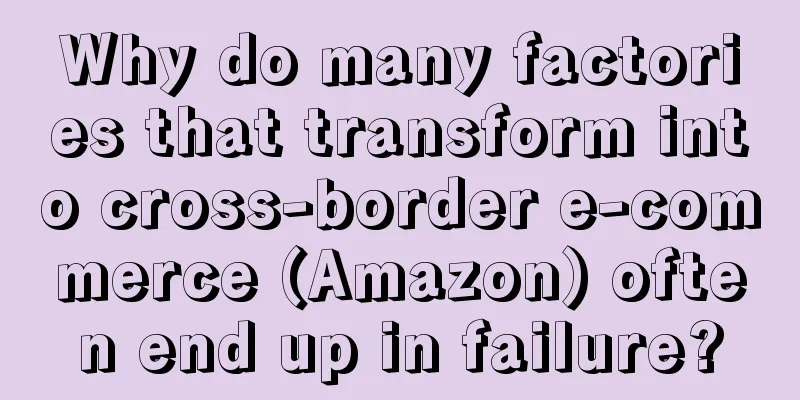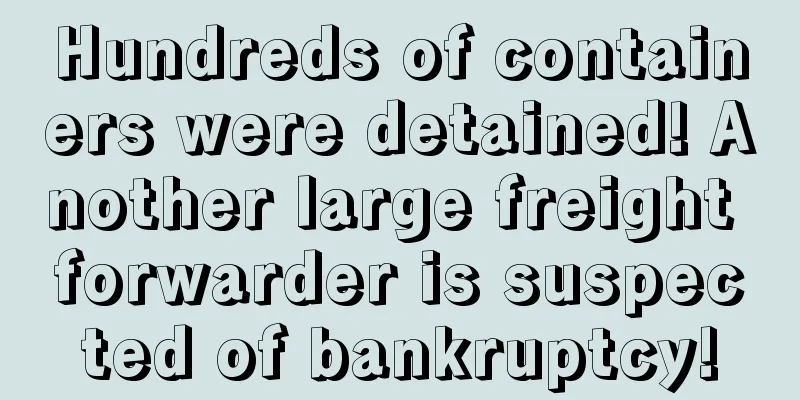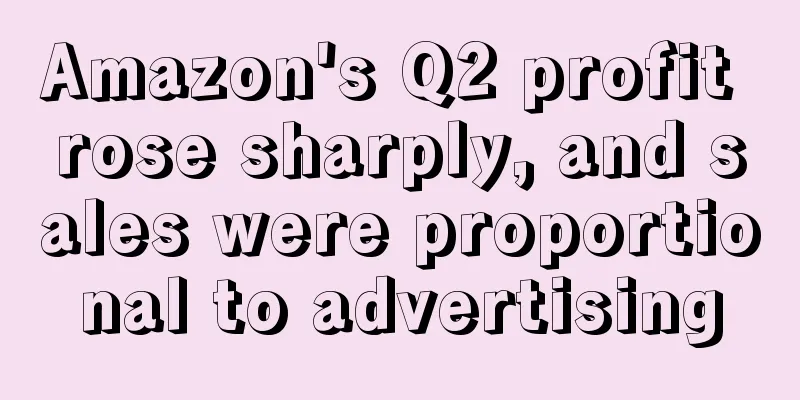Why do many factories that transform into cross-border e-commerce (Amazon) often end up in failure?

|
The following content comes from the sharing of a senior seller who wishes to remain anonymous. It is only shared using Alexya’s account and is not Alexya’s personal thoughts. 1. The choice of model does not match the actual action Distribution = The biggest workload is product development and product listing. If the efficiency and progress stagnate, it is not called distribution. Quality products = high-quality suppliers, cost advantages, quality, and delivery efficiency. The basic work of promoting each product must be done well. Naturally, products with obvious orders can be upgraded to hot-selling products, and investment in inventory preparation and promotion can be increased. Best-selling products = high-quality suppliers, cost advantages, quality, delivery efficiency, shipment volume, and maximum promotion investment. There is an element of gambling, but you have to do it within your means. It will be safe to do a 50-yuan business with 200 yuan in your pocket, and you will still have a chance to recover. In fact, it cannot be stabilized or held, and it will fall after a while. Then people will want to carry out the next wave of flash sales or off-site sales to enjoy the pleasure of promotional orders. Whatever others say sounds good, and they ask the company's sales to follow their models and processes. The reality is often very different. We have to do it based on our own actual situation and sales operational capabilities. There is no panacea for sales. What we need to cultivate is the improvement of sales operational capabilities. I compare it to traditional Chinese medicine, not Viagra. People outside generally only talk about the good things, such as how much money they have earned and where they bought the house. Few people will talk about how much money they lost or what pitfalls they encountered in which product or project. It is often just empty talk and has no reference value. I personally think it is not feasible to solve one problem before solving it by solving another one. The former operations director or general manager of xx company may be useful, but most of them are half-baked. We need a person in charge, but more of them should be trained from internal interns, who may have higher stickiness and loyalty. We are not painting pie in the sky, but making pie together, turning a small pie into a big one, and everyone has a share. I think to judge whether a person is good or not, we should not listen to what he says, but look at what he does and what the result is. Pleasant words will often only confuse your judgment. I want to say that I understand the boss's difficulties. The company is short of funds and has performance targets for this year. The company is under pressure from shareholders and needs someone to contribute to the company or even make more sacrifices. But please understand that choosing to work overtime is a voluntary thing for sales. Everyone has the right to choose. If someone likes to struggle, let him struggle and give him promotion goals and space. If someone likes to live, then demand good work efficiency and let him do his job well. Not everyone is willing to give up his family and life for a career, and not everyone is suitable for fighting. In teamwork, some people fight, some people charge, and some people are mediocre. Choosing to be mediocre is not not fighting, but a choice and should not be belittled. Everyone has their own work pace. Maybe working 8 hours a day is more efficient. There is no need to rigidly require 12 hours. We should give full play to everyone's expertise. Of course, the company will definitely not keep idle people, and those who take advantage of the situation should be eliminated. If the company wants its employees to be efficient and meet output targets, I suggest that the management team can be assessed on their overtime rate if their performance growth does not meet the target. If their performance is at the bottom for two consecutive months and they don't want to work overtime, then they should be assessed and included in the performance appraisal ratio. If you have good performance, there is no need to compete to see who can work overtime. Mai Mai Chat Cross-border Agree with: jijiaa, Natsume 2048, Beetle on the Grape Vine, 76554754, Machepower More » Summary of the problem 1-1 The factory does not understand the market conditions in the destination country 1-1-1 Some factories used to supply offline products, not even to the destination country. If you take the existing products and apply them to the online market of the destination country, the probability of failure is very high. 1-2 The factory does not understand the product 1-2-1 The factory only knows how to produce, not how to design products. Why do they design like this? Therefore, the resistance to internal communication and modification is actually much greater than the original free mold modification that users prepare money to place orders. 1-2-2 I know nothing about the product manual design, unboxing experience, and outer packaging design. I want to run in the direction of branding, but the actual customer experience is worse than the products of the fine shop. 1-2-3 Product quality inspection: optimization of inner packaging, box size, and how to optimize the outer box paperboard to pass the drop test. These are basically blank. Because you only refer to the standards of major customers to do this, you know the results but not the reasons. 2. [Recruitment] 2-1 Talent screening factories tend to recruit people like directors from well-known companies, but for people of this level, it is necessary to carefully identify whether he actually has the ability. For example, if you get a director from a 100-company company, first of all, the company's biggest highlight is the distribution project, and secondly, the top-level design ideas of the entire company's operations are all in the boss's mind. This director is just an executor, and he knows the results but not the reasons. It is difficult to make detailed adjustments based on your current reality. Thirdly, in fact, many managers in high positions are far away from the front-line business. They are better at strategic layout, resource allocation, personnel coordination and other work. Finally, the high-end talent market is very deep, and resume fraud is commonplace. 2-2 Salary Configuration It is difficult for factories to think in the same way as the e-commerce industry, so it is difficult to understand the salary level of 50+ yuan at the beginning. If you think about the principle of spending little money to achieve great things, you will miss out on truly capable talents and over-package yourself as a parallel importer. 2-3 Management Style Many factory bosses are over 50 years old and tend to think like an emperor managing his officials. This is difficult to reconcile with the relaxed and free attitude of cross-border e-commerce and the trend of expressing opinions. After enduring for a few months, the trader may leave in frustration. 2-4 It is easy to find traders, but difficult to find supporting staff. It is easy to recruit traders with high salaries, but it is difficult to find ordinary operators with good qualifications (determined by the location and environment of the factory). It is like having an engine but no wheels. 3. Internal Process 3-1 Finance is chaotic/rigid. Many expenses that need to be made immediately cannot be approved immediately. Even the finance manager is a relative of the boss, so any small expense requires a lot of explanation. 3-2 Internal nepotism/relative spies Some internal supporting managers have complicated family relationships. In addition, many bosses are used to arranging a "little nephew" to learn about e-commerce business, which increases the difficulty of business promotion and creates more trust crises. IV. [Stocking] 4-1 One situation is that the stock is very small, the initial 200-500 test stock is small, and the marketing funds will also be small. If you sell more, you will lose a lot of money after you settle the accounts. 4-2 One situation is that the stocking volume is huge. The stocking logic of some bosses, 10,000+, may be a little ridiculous. A certain production line will be idle for a week, and the production line capacity will be fully utilized this week. The workers cannot be idle, so the quantity of the first batch of goods will come out like this. A large stocking volume means a large backlog of funds, and a large marketing budget should be matched to promote it (in fact, whether this project should be launched is questionable, and it is already a way to save the defeat). But at this time, when you want a large marketing budget, it will be extremely difficult. There is even no such thing as a budget. Products can be sold at a loss, but there is no budget. 5. Marketing 5-1 The factory wants to build a brand, but has no awareness of brand marketing. It wants to register a better brand, set up a brand website, and social media accounts, but it is difficult to implement in the early stage. 5-2 It is difficult for factories to have a concept of marketing budget. Since they have been calculating the cost of raw materials and labor costs for a long time, they need a process to accept these virtual expenses. 6. Trust Issues 6-1 Factory owners have their own information channels and often hear some exaggerated industry myths from their peers, and then come back to talk to the traders about whether they can do it this way. Over time, the trust between the two will be problematic. The high salary of the 6-2 trader will cause dissatisfaction among many of the factory’s customers, and will gradually divide the relationship between the boss and the trader. 6-3 It is something that only gods can do to make every product a hit. In the early stage, you need to accept the problem of product promotion success rate/the problem of poor short-term financial performance due to product sales (all eaten up by the ice-breaking marketing costs). 7. Execution Issues 7-1 For many bosses, setting up an e-commerce team is just a whim, a chance-seeking thing, which is equivalent to not having to go to Macau. But for the trader, this plate is his business card that he can show to the industry in the next 1-2 years, and it is a matter of life and death. So when you are full of enthusiasm to discuss planning and deployment with your boss, the boss may be busy drinking tea and bragging with friends. If you are not treated well, the project execution speed will slow down over time (this situation is very common after the honeymoon period) 7-2 As the saying goes, it is easier to get a monk from outside than to go to a factory. However, this saying is unlikely to work in a factory. The people below you may not listen to you, but rather listen to the boss. Not to mention the relevant departments that cooperate with you, especially if your relatives don't give you a bad eye. 7-3 The boss does not have the perseverance to do the project. Because he has access to too much information and opportunities, he often hears that he wants to study this and that, and many things he promised in the early stage are not implemented halfway through, or are delayed, resulting in the collapse of the project. 7-4 will count the small things, but not the big things. They set up checkpoints at every step, and eventually the backlog will pile up. 7-5 Short-sighted thinking, tends to do a lot of short-term behavior. For example, in the early stage, blindly low prices to promote activities and sales, lost in the orders. In the mid-term, when the financial data is found to be wrong, it starts to worry about gains and losses and blindly raise prices. 7-6 Individual participation is low. Many interim meetings are missing, and business progress is judged based on interim financial reports. 7-7 hopes that the trader is all-round and can handle all business matters, but it cannot provide the corresponding resources. 8. [Factory’s helplessness] 8-1 Small and unstable e-commerce volume. I am used to receiving large orders, but suddenly I have to do all kinds of supporting services for a small amount, which is very exhausting. 8-2 Large-scale mold modification is not cheap. If you encounter an operator who is desperately trying to open a mold to seek a breakthrough, the factory will also suffer. It costs a huge amount of money, but the product may not be promoted. If you have this time, you might as well lead the R&D team yourself and go to more exhibitions to attract customers.
Big face, big heart, love to toss First, the core competitiveness of the two is different; 1. For the factory side, it is relatively asset-heavy, so it is difficult to make product transformation; on the factory side, more than 80% actually only have a certain production cost advantage, and 15% of the factories have shallow resource integration capabilities and can provide relatively differentiated single products, and 5% of the factories have market research, product definition, product design, development and manufacturing capabilities (especially research and product definition capabilities, which may only be what they think they are) Finally, these 5% of factories only have advantages in products or product series in a very specific category. They face great resistance to expanding their product lines and have limited capacity. It is very difficult for them to expand into e-commerce. Of course, in recent years, some companies have successfully transformed through continuous investment and hard work. However, in comparison, more cases are factories that previously served the B-end market and transformed into factories that served both the B-end market and the C-end market, and at the same time had the ability to sell to the C-end market online. 2. For e-commerce companies, its advantages are short-term, fast, and asset-light operation (except for inventory and intellectual property rights, it is almost only computers), focusing on market demand, research, product definition, and constantly launching new trial products. After finding good products, they will make overall optimization and give play to the scale advantage, while product manufacturing or execution based on clear product demand or design requirements is handed over to the factory; They often focus too much on market opportunities, which leads to fragmented product lines and inability to organize a sound and systematic product development and design team. Moreover, R&D and design itself requires several years of investment to produce output, and the remaining product manufacturing still requires factory assistance. If they want to expand to production and manufacturing, they have to transform into heavy assets (the disadvantage is that it is difficult to convert. For example, if a factory that makes plush toys switches to making bamboo art products, it means reinvesting manpower, capabilities, and equipment), which is even more difficult. Second, the investment cost of capacity building is high. Factories and e-commerce companies each build their own competitive advantages in their own areas of expertise, and it is more realistic for the two to join forces. E-commerce companies involve a wide range of business scopes and chains, and it is difficult to manage them in a refined manner. They rely more on the output of high-quality talents with strong comprehensive capabilities and need to continuously launch new products. Their capital investment and operating risks are also high. It is not a simple business as most factories think; factory owners who enter rashly and do not have sufficient knowledge and ability in the e-commerce field, cannot provide effective product advantages and the ability to expand products, are also very likely to be frustrated; Stupid Sheep Noih Agree with: Duole Xiaojiqiao, xuanyuxuan, Fool in the world, Cross-border combat, Sada said more » If you two are talking about factory transformation, I should have a say. But I personally feel that the title has nothing to do with the content. About the mode: So I always think that the model is not a problem, because there is no choice. The "model choice does not match the actual action" mentioned in the article is because of insufficient ability and the inability to achieve the established goals, which leads to deformation.
Whispering Breeze Agree with: Natsume 2048 I have been to two factories that make Amazon products. They were boutiques and started to succeed, but both entered a stage of decline. My personal experience: 1. Bosses who come from the B-side do not have a good understanding of the profit margin, payback period, and stability of the cross-border C-side. The two are very different. Most bosses are unwilling to listen to unpleasant words that do not suit their tastes. They only want to hear good words, that is, half-baked managers or operations paint a rosy picture for the boss, and everyone just works as long as they can. 2. A lot of temporary shipments → The boss is unwilling to ship so much in a short period of time → Loss of opportunities after out of stock → Resentment in operation 3. Poor product quality → slow progress in R&D → poor ratings, links become mediocre 4. Unreasonable commission distribution → Unwilling to increase overall salary and may even suppress it → Disunity and slow loss of old employees Anonymous user Agree from: Anonymous user, Bai Yueguang SSS
Anonymous user Agree from: liudong1105, How to touch fish "I trust people outside the company more than those inside the company. Whatever others say is good." When I was leading a team before, it was obvious that we had more experience, and our performance and profits were better than those of the boss’s so-called peers and friends. However, when problems arose, the boss still listened to them, and when mistakes were made, we still had to take the blame. There is a classic saying: Only if you are not someone close to him, he will trust you. Don't get too close to people, everything in the distance smells good. Anonymous user Agree from: Elina9, Anonymous User, Natsume 2048, White Moonlight SSS, Username already exists. More »
Anonymous user Agree with: Greedy and lustful vulgar people, anonymous users, Natsume 2048, old leek Awen
Anonymous user Agree with: Elina9, DYKnow a moment ago, Beetle on the grape vine, Cross-border combat, Glimmer more » It's very simple. If you let some e-commerce companies lose millions of dollars in the early stage because of a link, the boss of the e-commerce company can continue to operate with a good mentality, but if the factory boss loses so much, his mentality will explode long ago. Their experience of running a factory for so long has made the boss form a mindset that he will only do it if there is profit in the early stage. The profit situation of mature e-commerce companies basically follows the break-even analysis curve. Guts123 Transforming from a traditional factory to an Amazon seller is not just a change of sales channel, but a thorough transformation from a production-oriented enterprise to a branded and service-oriented enterprise. If the factory cannot change its way of thinking, it will be difficult to adapt to the complex ecosystem of e-commerce by relying solely on production advantages. To succeed, it is necessary to have market acumen, brand operation awareness, a professional team, and the ability to continue learning. Anonymous user Agree with: Duoduo loves to eat prunes, Elina9, DYKnow a moment ago, JosephGan, ALu Cross-border more » One more thing: I don’t understand the business but I often interfere with the operation. The planning is a mess. I like to listen to the guidance of friends and watch other people’s strategies, but I rarely consider whether our funds and products can replicate such strategies. I don’t estimate the losses. I think the losses can be borne in the early stage, but when I actually operate, I find that the company can’t afford it and start to limit the budget.
Anonymous user What I encountered was a factory owner and a professional manager working together. Halfway through the process from 0 to 1, when they had achieved a little success and made a little money, they kicked the professional manager out and started to work on their own. They ignored market demand, blindly developed products, did not understand sales, and did everything at random. In the end, the company became a mess, management was chaotic, employees resigned, and the company was dissolved. They did not adhere to long-termism and suffered the consequences... Anonymous user In order to save on development costs, some factory owners pay very low wages. I don’t know what kind of talent they are trying to recruit. Anyway, they think Amazon is very easy and they can hire a hit operator without spending any money. So they are particularly fussy and end up hiring someone who is like an assistant. Anonymous user The core reason why factories fail in doing business on Amazon is that they over-trust in agency operations and training, have no determination to build a brand, only want to copy others to make quick money, cannot get rid of the dependence and constraints of B-end thinking, give blind orders, make random interference, and let the butt decide the head, and laymen lead the experts. Anonymous user Agree with: A moment ago DYKnow, Fool in the world, Beetle on the grape vine, Black bar in the waves, ChrisC001 This post should become a hot post, it hits the nail on the head. Although it is only 8 points, it explains the current situation of most companies. Although the title is about factory transformation, the content can actually be applied to many companies. Dugu Wang618 Agree with: Elina9, Beetle on the grapevine In fact, as a factory owner, it is feasible to break the inherent factory management methods and select excellent managers. After all, the advantages of the factory are still very obvious to ordinary e-commerce companies.
|
Recommend
Account suspension warning! These brands are represented by GBC, and a large number of sellers will be affected...
According to SellerDefense, recently, three Premie...
Breaking through 1500! Just now, the shipping restrictions were relaxed by double! But the sellers are crying...
Written in front Throughout last year, Amazon'...
What is Andalin? Andalin Review
Andalin is an Indonesian online freight forwarding...
There is no sunny day on Amazon! Is the account banned again during the peak season? Here is what the appeal boss said...
The Black Friday season is coming, and what seller...
What is mshair? mshair review
mshair provides high quality 100% human hair exten...
What is Souq? Souq Review
Souq is the largest e-commerce platform in the Mid...
What is U.S. Customs and Border Protection? U.S. Customs and Border Protection Review
The U.S. Customs and Border Protection (CBP) is a ...
What is Yandex.Money? Yandex.Money Review
Yandex.Money is one of the largest payment provide...
BigCommerce and Feedonomics team up to enhance omnichannel sales capabilities
<span data-shimo-docs="[[20,"获悉,近日美国SaaS电商...
What is mysterious? Mysterious review
Mysterious was founded in 2015 and is a Delaware l...
What is Y Combinator? Y Combinator Review
Y Combinator is a well-known American startup incu...
Walmart is optimistic about the third-party market and expects it to account for the largest share of revenue within five years
According to Reuters, Walmart Chief Financial Offi...
How to increase the natural traffic without evaluation when the product is out of stock and re-launched? The natural traffic is very small when it depends on advertising...
Anonymous user My C position Basic situation: The ...
Google launches one-stop e-commerce platform Qaya! Help creators build online stores!
It is learned that Google recently announced the l...
The volume of imported containers in the United States continues to plummet, and may resume growth in the second half of 2023!
It is learned that according to foreign media repo...









